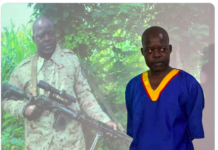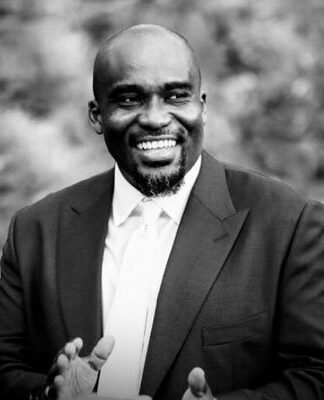Frequently in my thoughts lately is the famous phrase by the 18th French philosopher Joseph-Marie, comte de Maistre that “every nation gets the government it deserves.” What has provoked these thoughts is Paul Kagame’s speech of 30 June 2013 in which the Rwandan President made two extraordinary utterances.
In the first instance, the Rwandan head of state directly threatened his Tanzanian counterpart that he will wait for him at the right place and hit him for suggesting that Rwanda negotiates with armed groups based in Eastern DRC. In the second instance, the Rwandan president urged the entire Hutu community to repent and ask forgiveness for the 1994 genocide in Rwanda.
What is all the more shocking is that President Kagame chose to deliver these despicable remarks to a gathering of impressionable youth. Back to comte de Maistre’s phrase – “every nation gets the government it deserves.” Is the nearly 20-year old RPF regime, a government we deserve?
AM I BLAMING THE VICTIM?
I anticipate what some of my readers will immediately accuse me of “blaming the victim.” You will insist that Rwandans did not create the repressive state whose head openly threatens to “hit” a fellow East African Community and African Union leader and humiliates an entire ethnic group. You will add that Rwandans are in fact helpless in the face of the monster state that now rule them. You will in other words insist Rwandans have neither the power to improve nor to replace the regime.
You will say that the lot of “ordinary Rwandans” feel inadequate as they are in effect tolerant, and historically-repressed folks that meekly obey orders. The “typical” Rwandan is the target of innumerable commissions, plans, and orders that leaves no space to think for herself/himself. The pseudo-leaders lord it over all 11 million Rwandans who merely obey like a flock of sheep.
You will conclude, furthermore that, when the US President Barack Obama on 1 July 2013 challenged the peoples of the Great Lakes region “to stand up and say that’s enough” and that “it’s time to move forward in a different way,” this is not possible in Rwanda because it is a police state.
WAIT A MINUTE – DID THE CURRENT STATE CREATE ITSELF?
But you know what? The Kagame government was not created by Paul Kagame alone. Many Rwandans, especially all of us members of RPF did. In hindsight, we can now see how indeed we have a government we deserve. Consider a few highlights in this regard:
* In 1997-8, RPF allowed Paul Kagame, then the powerful kingmaker as Defence Minister and Vice President, to become RPF chairman, while the Head of State Pasteur Bizimungu became Kagame’s deputy in RPF; Bizimungu’s presidency was doomed from then onwards;
* In 2000, when Kagame became President, the post of Vice Presidency was scrapped – without a counter-balancing high office in the land;
* In 2003, the RPF-drafted constitution made Kagame an imperial President who determines almost all aspects in the executive, judiciary and legislature; to top it off, he was given two 7-year terms – which he clearly intends to extend;
* 1994-2013, whenever any individual was purged from RPF, the rest condoned it – until the entire original group of leaders perished with Paul Kagame the only one left standing; the last crop to be dumped comprised ministers Musoni and Karugarama. RPF is now quite literally Kagame himself.
It appears that we Rwandans, or at least members of RPF created a monster state that steadily turned on its creators. YES, WE HAVE A GOVERNMENT WE DESERVE!
SO WHAT IS MY POINT
If we are to organise and have the courage to say, in President Obama’s words, “enough is enough” to the current excesses in our country, Rwandans have to tackle a number of challenges over time, not least the following:
1) It appears that historically, Rwandans tend to believe that a single individual will deliver us to the promised land; soon we idealise such individuals into heroic, and, at times god-like figures. Un-questioning flattery and praise to the point of hero worship cement this kind of politics that have found home in Rwanda since the ascendency of Kanjogera in 1896. Habyarimana’s regime (1973-1994) and Kagame’s (1994-2013) illustrate the practice and bankruptcy of these politics. Broadly-speaking therefore, abandoning politics of personality cult is a war that must be won by almost all Rwandans – individually and collectively – as this is something that seems ingrained in most of us.
2) The various political groups/movements currently active in and outside Rwanda have to re-think politics. They surely have to abandon personality politics as they organise and mobilise to challenge the Rwandan status quo. Otherwise we will end up with same politics that we seek to end.
3) Developing a grassroots non-partisan thinking at least in Diaspora and later organise such movement inside Rwanda to hold accountable leaders and public officials in post-dictatorship era. This is one crucial element that is always missing in Rwanda – a strong non-partisan and credible voice for good governance.
These thoughts may seem outlandish but we surely have to begin somewhere.
David Himbara





























































